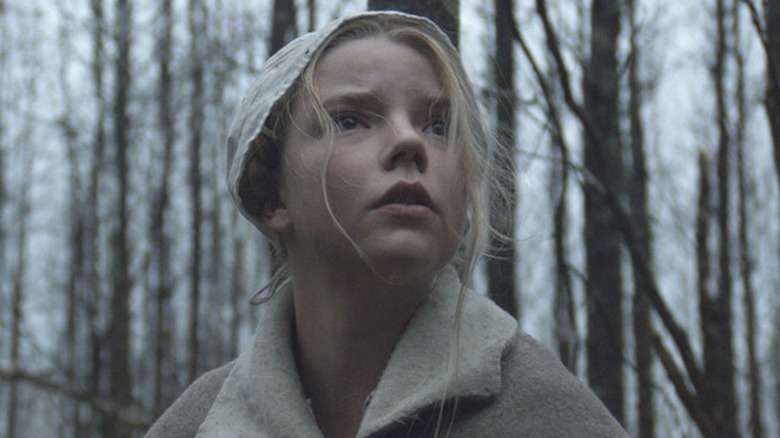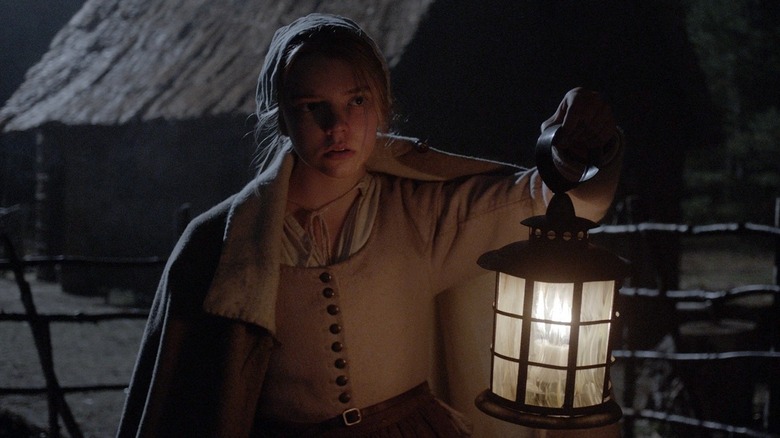What Does 'Wouldst Thou Like To Live Deliciously' From The Witch Mean?
Pitting a Puritan family against the forces of witchcraft and Satanism during the early colonial period, "The Witch" is also a tale of how stubborn individualism leads to a family's downfall. With William (Ralph Ineson, who says he was never the same after the movie) unable to get along with his fellow Puritans, his family of five is cast out of their colony and soon picked off one by one by the witches who live near their new house. This battle between the need for creature comforts and the weight of sin is encapsulated by the film's most famous line: "Wouldst thou like to live deliciously?"
During the ending of "The Witch," after the entire family is killed, only eldest daughter Thomasin (Anya-Taylor Joy) is left. Though her parents have accused her of witchcraft and being party to the abduction of her infant brother, she has been innocent of their claims until now. Stranded and with no other choice, she offers her soul up to the devil, entreating the family's menacing goat, Black Phillip, to speak to her. Thomasin believes Black Phillip is the devil, and he does reply to her, saying, "Wouldst thou like the taste of butter? A pretty dress? Wouldst thou like to live deliciously?"
The devil, through Black Phillip, is offering Thomasin a tempting escape from the constant life of drudgery, sacrifice and pain to which she has been subjected. To live deliciously is to live in happy luxury, with benefits others don't have. These are tiny treats that Black Phillip offers up, but Thomasin has known none of them in her miserable, Spartan life. God has ignored her prayers and taken her family. Is it any wonder she asks Black Phillip to guide her now?
Robert Eggers thought hard about Black Phillip's iconic line
Thomasin is last seen blood-soaked, nude, and laughing hysterically as she rises into the air with her new witch sisterhood. It's clear that "living deliciously" won't just involve tasty food and pretty clothing, but embracing a whole new kind of power and supernatural abilities.
While this is a fantastical ending, director and screenwriter Robert Eggers explained to historian David D. Hall that keeping Thomasin's choice grounded in reality helped make her acceptance of Satan's offer more understandable. "When I did test screenings of the film, a lot of filmmakers were saying, 'I don't know, this stuff seems kind of random. Maybe he can offer her things that make more sense thematically with the rest of the film,'" Eggers says in "The Witch Screenplay Book" (via Den of Geek). "That was a pretty consistent note, so I kept trying to find something better. Those were things the devil actually promised."
Eggers is referring to actual period-accurate testimony left behind by those who claimed to be possessed by the devil, where the afflicted claimed the devil tempted them with minor favors such as new shoes. That's just one example of Eggers' devotion to period accuracy; after all, he once said the thing that bothered him most about "The Witch" is that he didn't edit out Anya Taylor-Joy's earring holes. Since Thomasin is already set to be sold into slavery by her furious mother before Black Phillip does his trickery, it ends up being a case of "better the devil you know" — and Thomasin is extremely familiar with the devil by the time "The Witch" wraps up.

